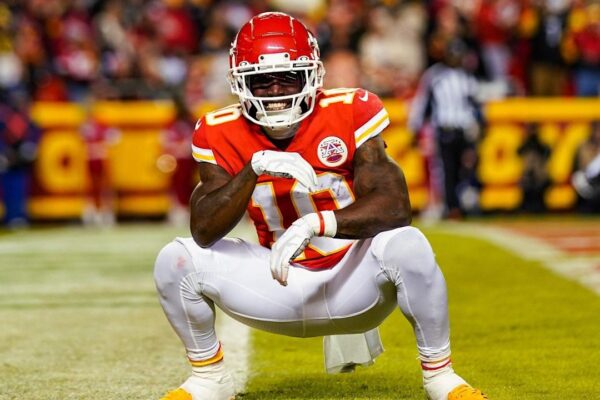The offseason is commonly thought of as a dreary dead period during which nothing happens.
Maybe we’ll revisit that definition in July, but spring in the NFL, beginning with the opening of the free agent market and ending with the draft, is a hot time. NBA-style exchanges make us say “wow!” as many times as we do during a spectacular regular-season game.
Some exchanges – like Deshaun Watson – we expect ahead of time. Others come as a surprise.
There was no obvious reason to trade Tyreek Hill from the Kansas City Chiefs. He is one of the league’s most dynamic receivers in his prime. He has three first-team All-Star selections and six All-Star Game appearances on his resume. He didn’t become a free agent right away or play under the franchise tag.
Perhaps in a quieter offseason, we would have paid more attention to the difficult contract extension negotiations. But there was so much interesting stuff going on around us that we just didn’t notice.
Hill had one last year left on his contract. The active negotiation phase had been going on for three weeks. “Kansas City made an offer that was supposed to make Hill one of the highest-paid receivers in the league. The player looked at Davante Adams’ contract and made it clear through his agent that he wanted to earn more across the board.
What separates the good clubs from the bad in the NFL is a healthy pragmatism. In dealing with star players, the most important thing is to break up on time.
Of course, the Chiefs and Patrick Mahomes will be sorely missed by Hill in the 2022 season. That probably lowers the team’s chances of winning the Super Bowl. And, similarly, it’s an acquisition for the Miami Dolphins, where the conditions are now set for Tua Tangovailoa to either prove himself proficient or be deemed a rejected commodity.
But there is life beyond next season. The Chiefs have a major element of success in today’s NFL: an outstanding quarterback. As long as Mahomes is young, long-term plans matter.
The Chiefs have determined how much Tyreek Hill is realistically worth. Overpaying a player (when it’s not a quarterback) is as much a blow to the team’s ambitions as losing a player. And general manager Brett Veach had the good sense to minimize the loss and get decent compensation for Hill. Five draft picks (first round, second round, two fourth-rounders and a sixth-rounder) is very good compensation.
By freeing up space under the salary ceiling and getting draft picks, the Chiefs can find a replacement for Hill among both free agents and yesterday’s students. It’s unlikely they can completely replace such a playmaker in the here and now, but whether the team becomes weaker or stronger depends on management’s continued work.
Maybe Mikole Hardman will step up — Kansas City has been waiting for his progress. Maybe the whole structure of the team’s pass offense will change. But you can’t go along with the egos of individual players when it comes to building a championship team.
From the Dolphins’ perspective, it’s also a good deal. First, new coach Mike McDaniel will be able to engineer the lightning fastest offense in NFL history — Hill plus Jalen Wadle plus Raheem Mostert.
Second, Tua Tangovailoa will spend a third season in 2022 on a four-year contract (with the option of an automatic fifth-year extension). After two years, Tangovailoa remains a cat in a bag, with experts arguing to the hilt about his potential. “The Dolphins need a clear answer about the quarterback’s capabilities before the sides sit down at the negotiating table. When it comes to a second franchise quarterback contract, you have to be 100 percent sure of your decision. And that decision will cost Miami far more in the long run than Hill’s contract and the draft picks given up for him.


